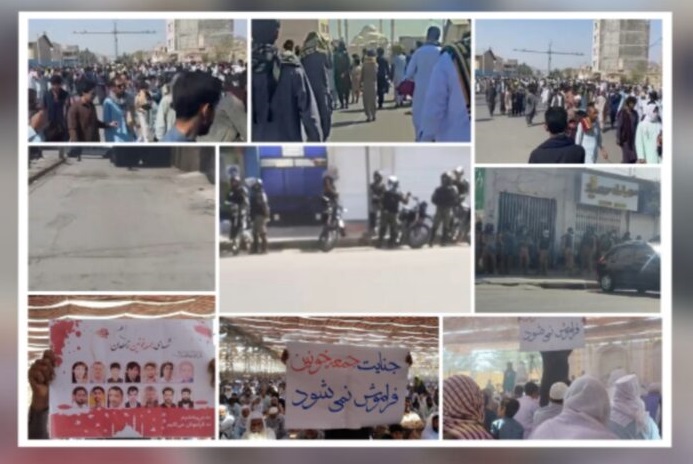Indian State Should Focus on Unconventional Methods: Jamal Nasir Baloch
The Bloody Friday: Iran’s Genocidal Policy Against the Baloch

By Shahdad Baloch
The Baloch people, under the occupation of Iran, have long endured political, economic, and cultural marginalisation. In Iran, this manifests as systematic oppression, exemplified by the “Bloody Friday” massacre of 2022 in Zahedan, the capital of Iranian-occupied Balochistan. The violent crackdown on Baloch protesters during this event symbolizes a broader genocidal policy that has persisted for decades. The Iranian state’s treatment of the Baloch nation has far-reaching consequences not only within Iran but also across the wider Middle East and beyond.
The Baloch have consistently resisted Iranian control over their traditional lands. Since 1839, particularly with the rise of centralised Iranian rule under the Pahlavi dynasty and later the Islamic Republic, Balochistan has faced harsh policies aimed at assimilation, suppression of cultural identity, and economic disenfranchisement. The state’s perception of the Baloch’s demand for political autonomy and religious freedom as a threat to its hegemony has led to systematic persecution.
The tragic events of September 30, 2022, known as the “Bloody Friday” massacre also known as the “Zahedan Massacre”, epitomise the violent nature of Iranian policy against the Baloch. Protests erupted in Zahedan following allegations that a police officer had raped a 15-year-old Baloch girl in Chabahar. The Iranian security forces responded with excessive force, using live ammunition against protesters, resulting in the deaths of over 150 civilians, including children, with hundreds more injured.
Hyrbyair Marri, a Baloch national leader, stated, “Iran’s regime is committing a slow genocide against the Baloch nation. The events of Bloody Friday starkly remind us of Tehran’s brutal policies aimed at eradicating Baloch identity and freedom.” His assessment highlights the systematic violence faced by the Baloch, not just in physical terms but also through cultural erasure, economic deprivation, and religious persecution. For the Baloch, events like Bloody Friday are part of a prolonged history of repression aimed at weakening their political will and erasing their identity.
The Iranian government’s policies towards the Baloch can indeed be characterised as genocidal, as defined by the United Nations. This encompasses not only mass killings but also actions aimed at destroying, in whole or in part, an ethnic or national group. The systematic targeting of Baloch civilians, as seen in Bloody Friday and other incidents, reflects a pattern of state violence intended to quash dissent.
The Baloch live under dire economic conditions, particularly in the western part of Balochistan, one of the poorest and most underdeveloped regions. High unemployment, lack of infrastructure, and limited access to education and healthcare create a deliberate marginalisation that degrades their quality of life and diminishes their prospects for survival.
Iran’s genocidal policies against the Baloch not only have local implications but also affect regional stability and draw global attention to human rights violations. The international community has begun to take note, with various human rights organisations condemning Iran’s treatment of ethnic and religious minorities. However, these condemnations have often resulted in little tangible change.
The Baloch diaspora, especially in Western countries, has become increasingly vocal in criticising Iran. Hyrbyair Marri has utilised international platforms to highlight the plight of the Baloch people and to call for intervention. He emphasises that “the world cannot turn a blind eye to the genocide happening in Balochistan.” Advocacy by the Baloch diaspora has helped to bring international attention to Iran’s abuses, even as the Baloch pay a heavy price for the unjust division of Balochistan.
The Baloch seek global moral support, as they face challenges from powerful nations that have historically set stringent terms for the freedom of oppressed nations. Despite being geographically tied to the Middle East, the Baloch have remained silent victims of injustice.
Iran’s treatment of the Baloch, particularly during events like Bloody Friday, underscores a long-standing pattern of genocidal policies aimed at eradicating Baloch cultural, religious, and political identity. The international community must take decisive action to address these ongoing abuses.
The poetry of prominent Baloch poet Rashid Deedar encapsulates the urgent message for both the world and the Baloch nation:
“قلم جیست بنت نہ خیال چیست بنت
پاتی جستجو ء سوال چیست بنت.
حدا دلبر ء گناہ ء ببگش
زمین ء دمال ء پہ شال چیست بنت “









